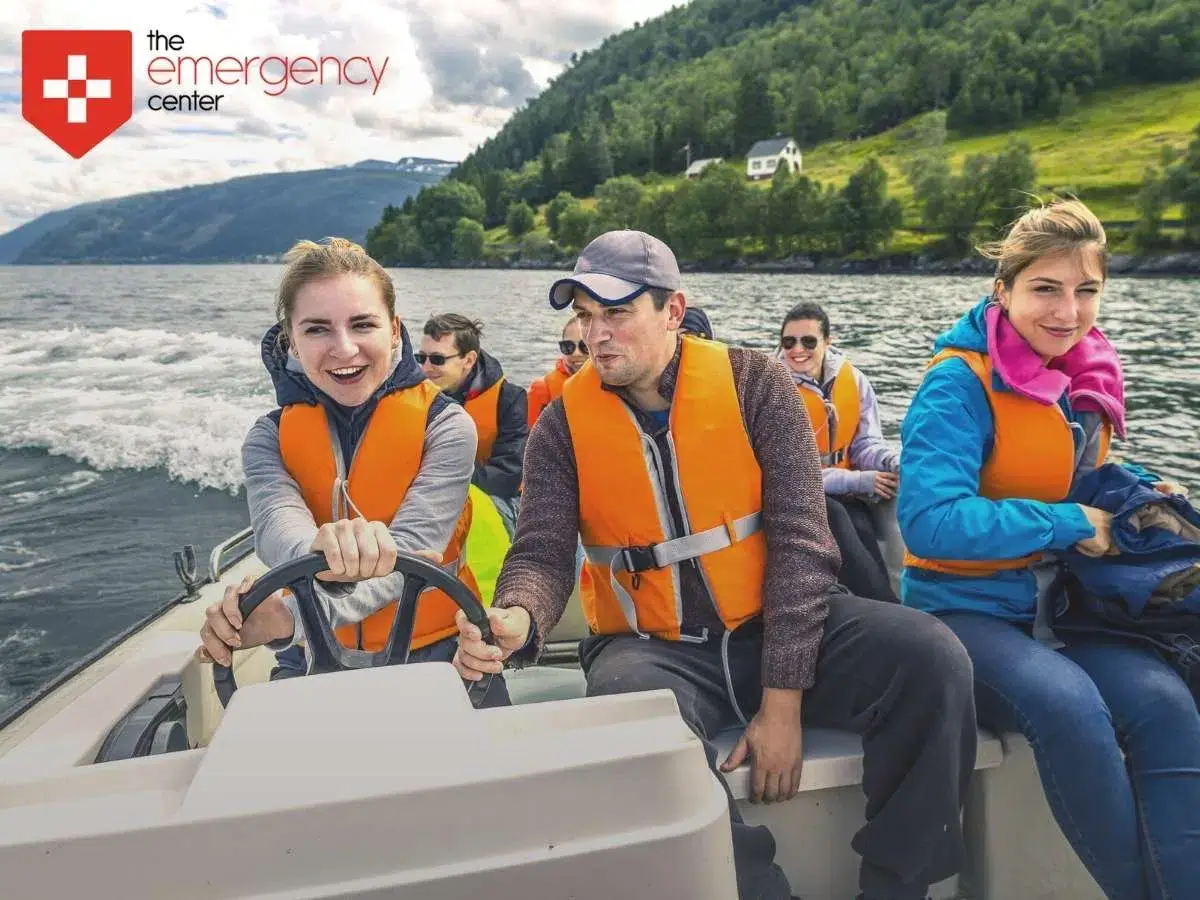Besides short sleeves and cold treats, summer is a time for fun in the water. Whether it’s a pool, waterpark, beach vacation, or trip to the lake, water is at the center of many hot weather activities.
Water safety is often thought of as a lesson to teach small children. But according to the Centers for Disease Control and Prevention, only one in five people who die from drowning are younger than 15. That means the vast majority of the almost 4,000 Americans who drown annually—including hundreds in boating accidents—are either teenagers or adults.
You probably remember most pool safety lessons from when you were a kid: don’t run around the pool, don’t eat right before swimming, and, of course, no horseplay.
But time spent in open water like lakes (natural or man-made), rivers, ponds, and oceans comes with its own set of rules that are not as well known despite the increasing popularity of this type of recreation.
Many of the same rules for the swimming pool also apply to swimming in open water:
However, it’s important to take additional precautions in open water as there are more potential risks. In fact, the National Drowning Prevention Alliance says that more than 40% of children who drowned did so in open water.*

Each year, there are thousands of boating incidents leading to head or neck injuries, death, or serious property damage, according to the U.S. Coast Guard. Whether you’re the driver or a passenger, it’s important to have the right knowledge and equipment to stay safe.
Water safety is about preventing tragedy. But despite even the best efforts, sometimes injuries occur on boats or while swimming.
Fortunately, The Emergency Center has the capabilities to address major and minor medical issues that happen on or in the water 24/7, so that you can get back to your summer of fun.
*based on 2016 statistics
The Emergency Center
San Antonio
11320 Alamo Ranch Pkwy
San Antonio, TX 78253
Phone: 210-485-3644
Conroe
4019 I-45 N,
Conroe, Texas 77304
Phone: 936-247-9457
Is your nausea more than just an upset stomach? Learn about the causes of nausea…
Experiencing numbness or tingling? Discover the causes and know when to seek emergency care for…
Experiencing abdominal pain? Learn what it could mean by location and when to visit the…
Is your skin redness a sign of something serious? Learn about different types of skin…
Why are ER wait times so long? An emergency room physician explains key delays and…
Are you aware of the dangers of carbon monoxide? Learn prevention tips, symptoms, and how…